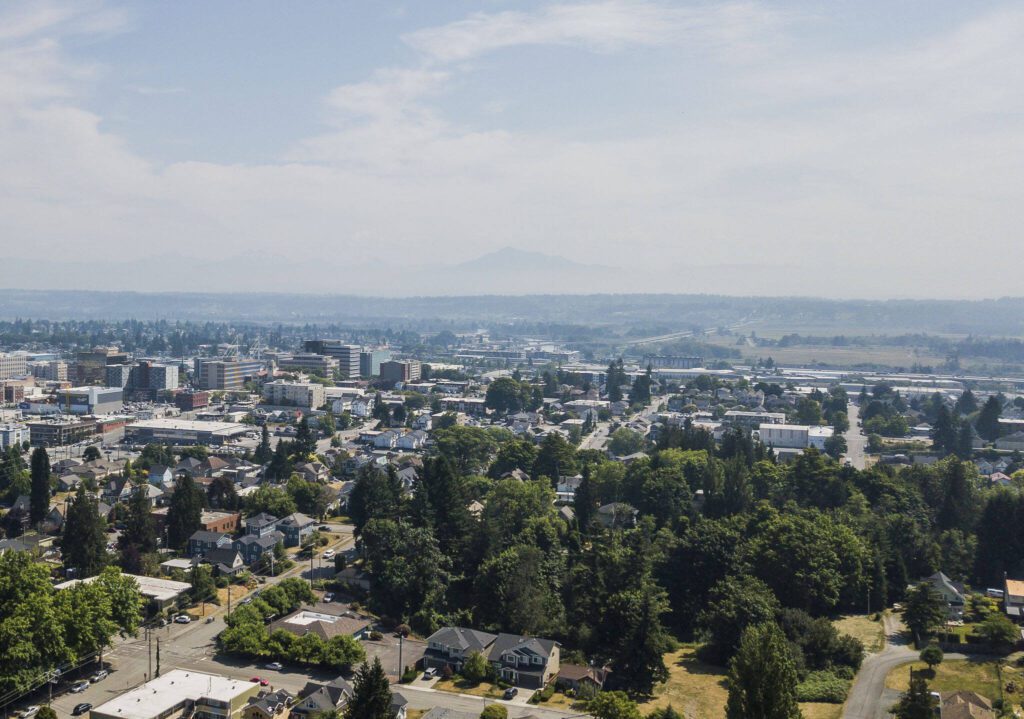EVERETT — Air quality levels in parts of Snohomish County were at unhealthy levels Wednesday as the region bore the brunt of leftover firework smoke from the Fourth of July.
The haze in the air was also a result of a “handful” of local fires, according to the National Weather Service in Seattle.
In the morning, some cities in the county exceeded 150 on the Air Quality Index.
By noon, both Everett and Marysville were at an air quality level that was “unhealthy for sensitive groups,” with an Air Quality Index dropping slightly to 130.
Conditions before the fireworks were already muggy due to smoke from wildfires in British Columbia, but wasn’t the main cause, the weather service noted.
Visibility and air quality were expected to gradually improve Wednesday as some of the “near surface” smoke began to mix upwards, according to meteorologists. Air quality is lower in areas of Washington where there are active fires, such as Tacoma and Shelton.
The smoke is expected to last until Thursday before beginning to clear out thanks to air flow from the Pacific clearing the smoke out and spreading it east, meteorologist Dustin Guy said. The process will be gradual and take a few days to fully dissipate.
Heading into the weekend, temperatures are expected to be “above normal,” with highs in Everett in the low 80s, according to the weather service. By early next week, meteorologists expect temperatures to cool down, reaching highs in the mid 70s by Tuesday. The onshore winds from the Pacific will also increase humidity levels.
Snohomish County has two dozen cooling centers, including air-conditioned libraries, outdoor water parks and senior centers.
Wildfire smoke can impact your health in a number of ways. Symptoms include: a burning sensation in the eyes, a sore throat, runny nose, headaches, wheezing, coughing, and shortness of breath, according to the state Poison Center.
The state Department of Health recommends a number of ways to protect yourself and alleviate any symptoms:
• Stay indoors
• Improving filtration in your house by using a portable air cleaner
• Use masks when appropriate
• Use artificial eye drops and stay hydrated
• Reduce physical activity
• Have a plan to evacuate
Jonathan Tall: 425-339-3486; jonathan.tall@heraldnet.com; Twitter: @EDHJonTall.
Talk to us
> Give us your news tips.
> Send us a letter to the editor.
> More Herald contact information.


























